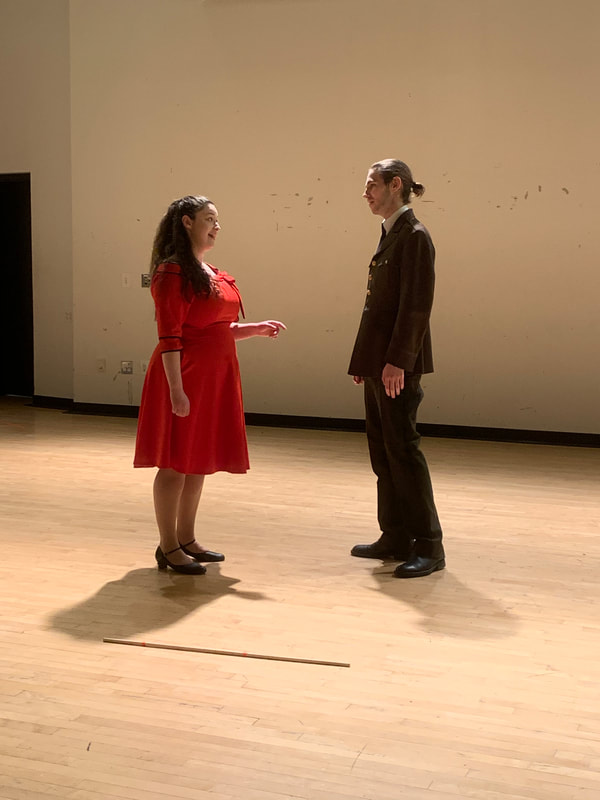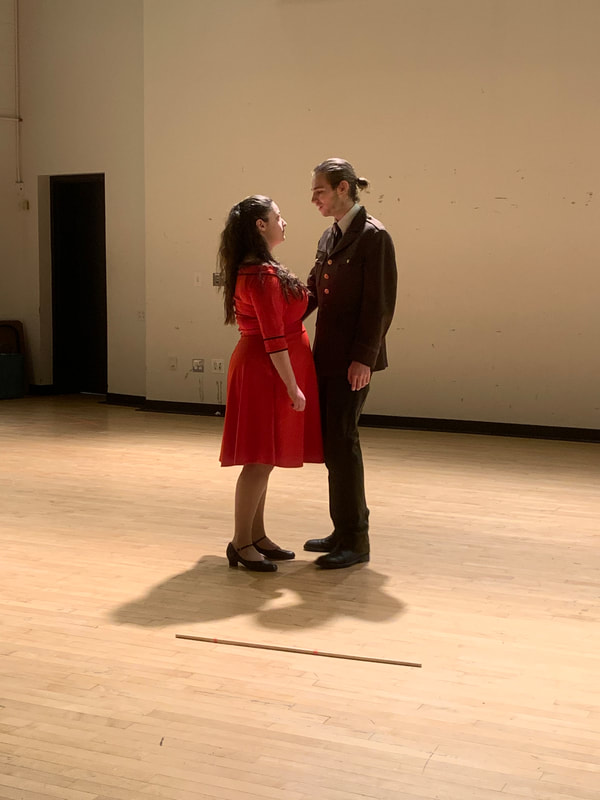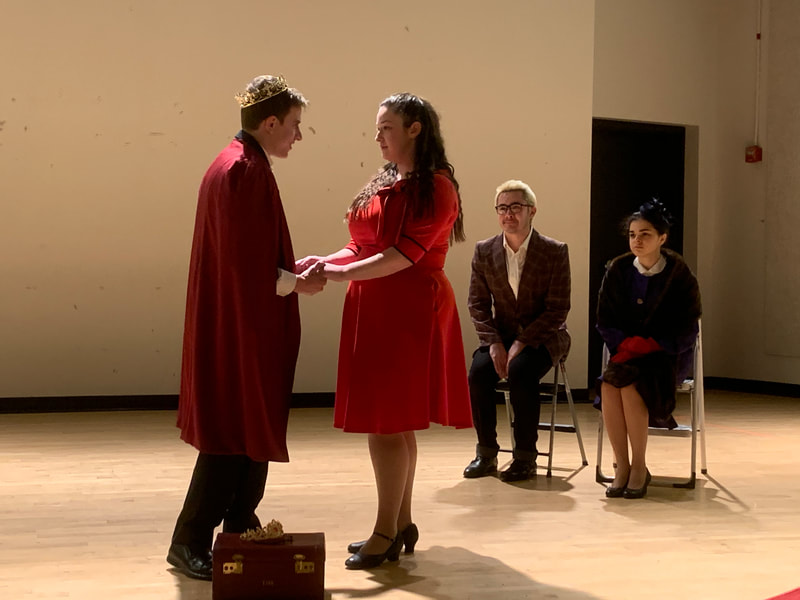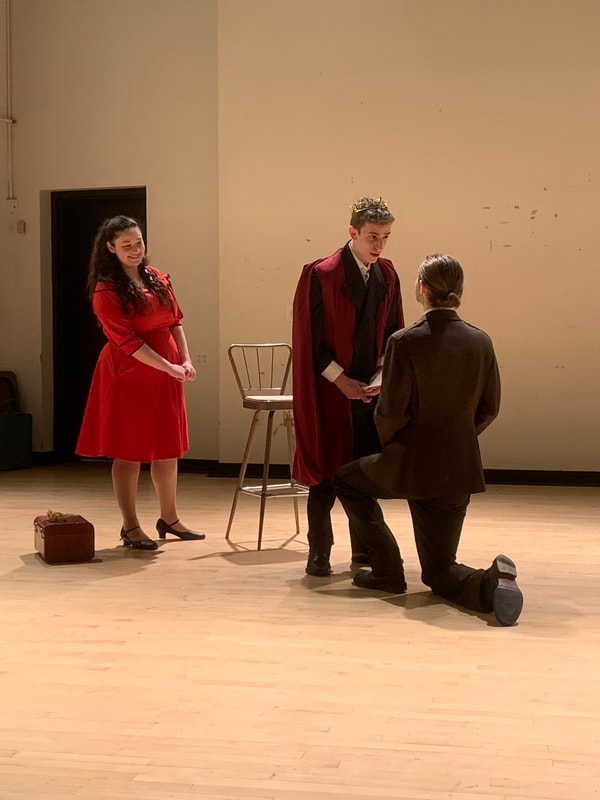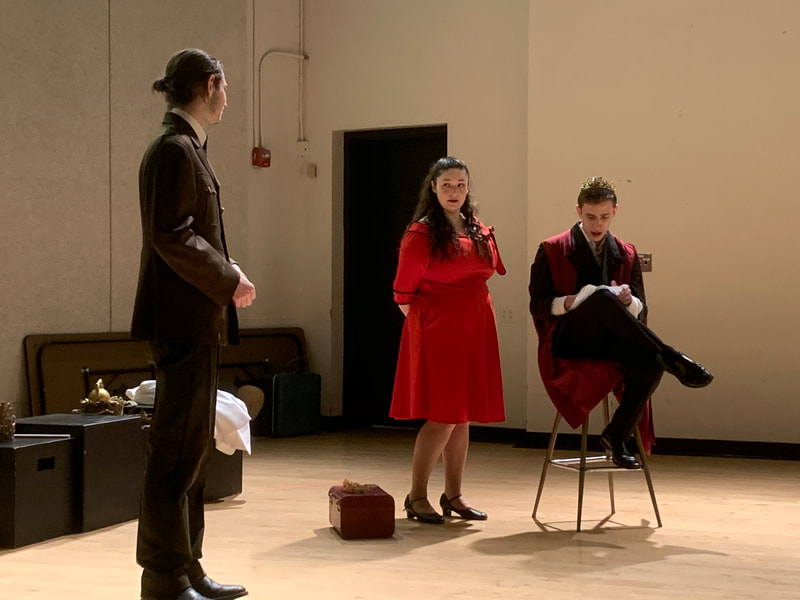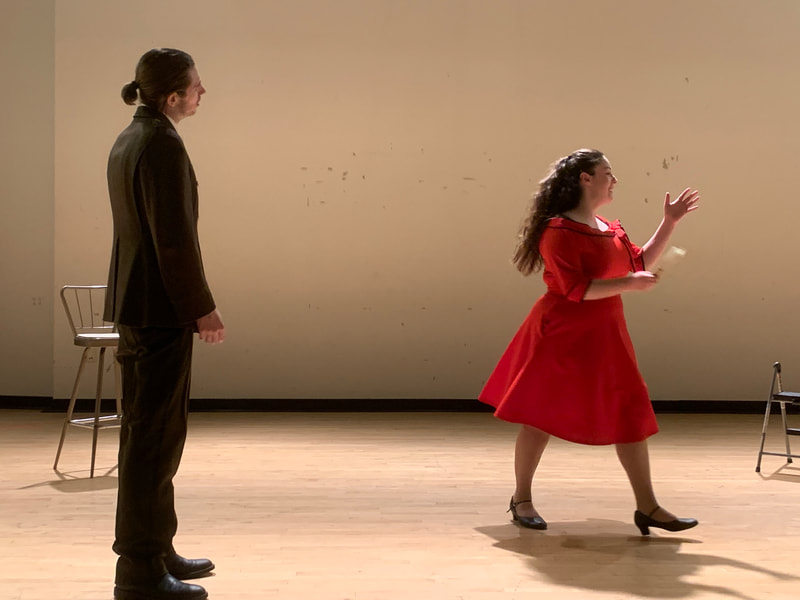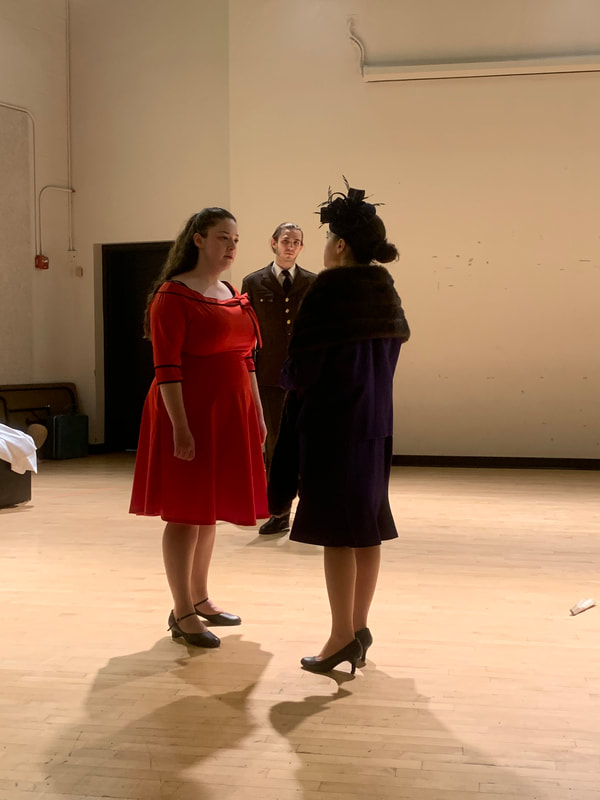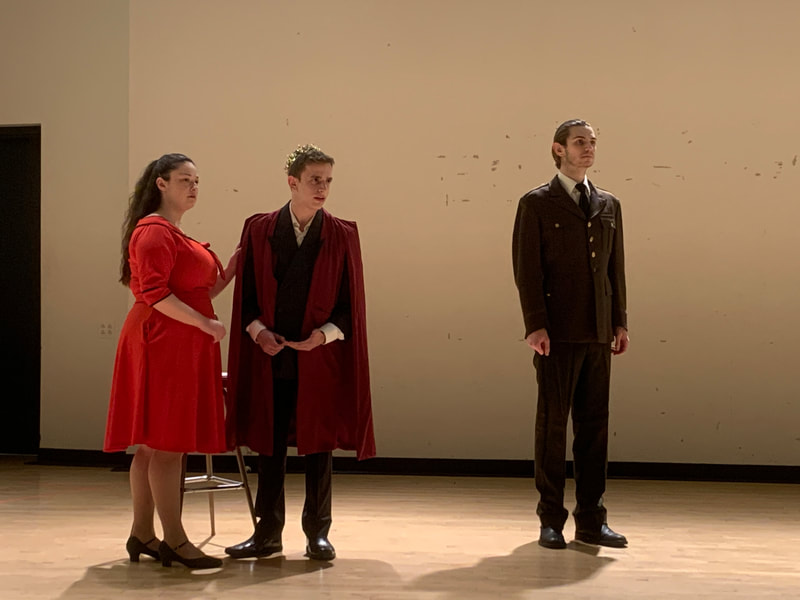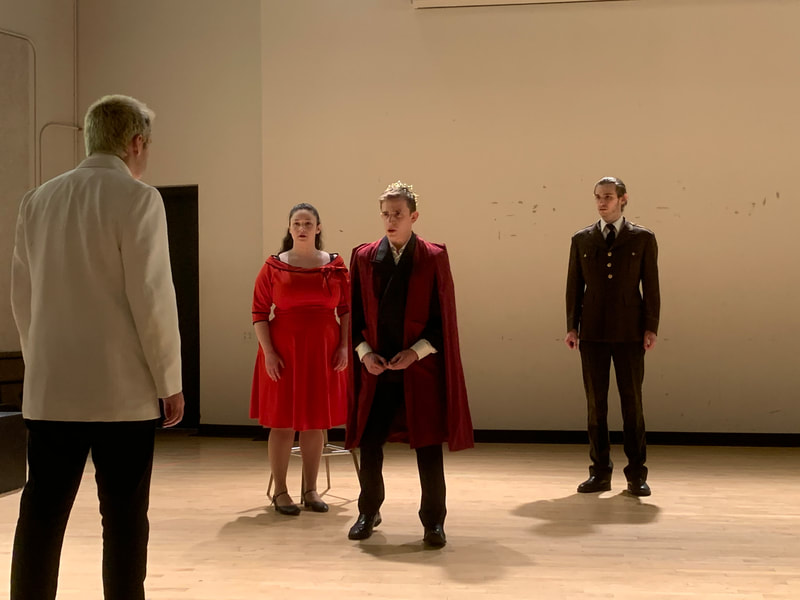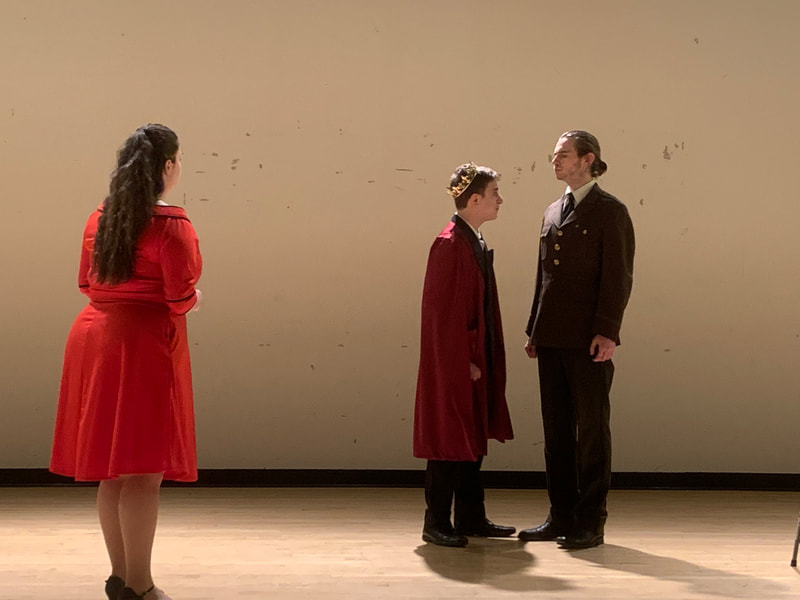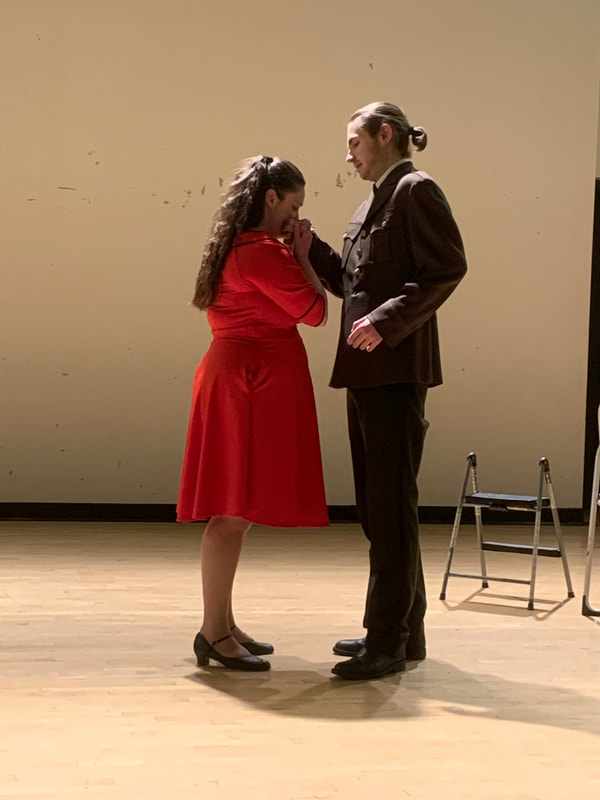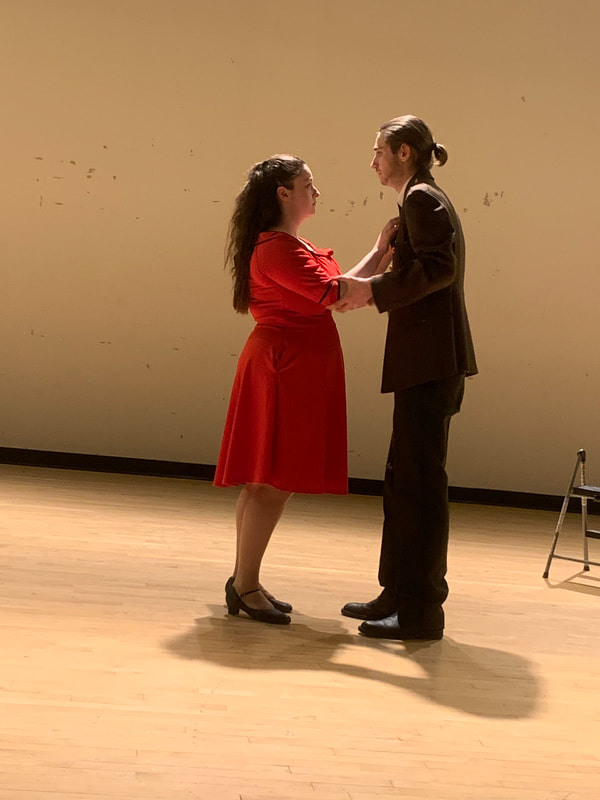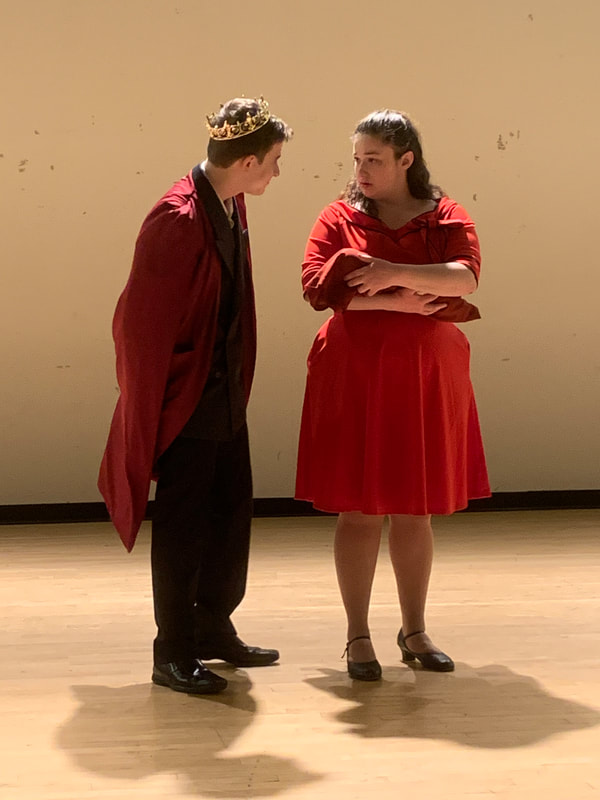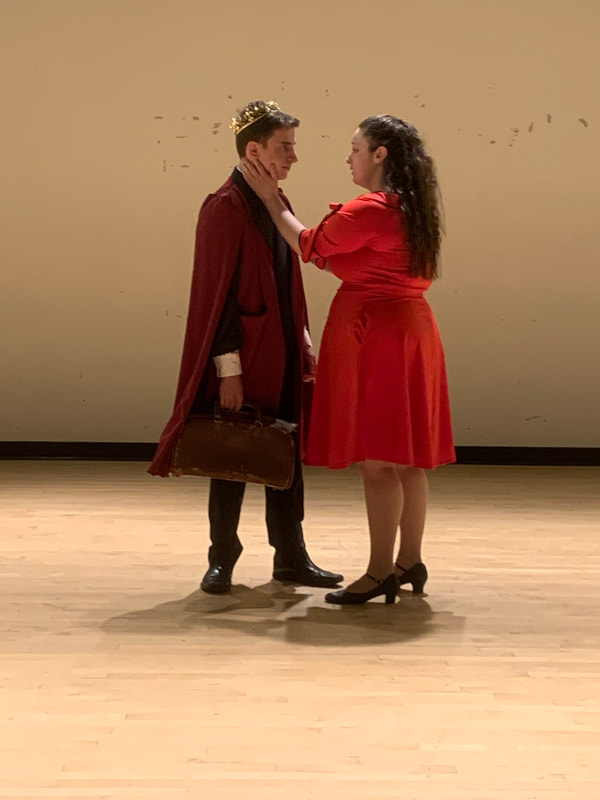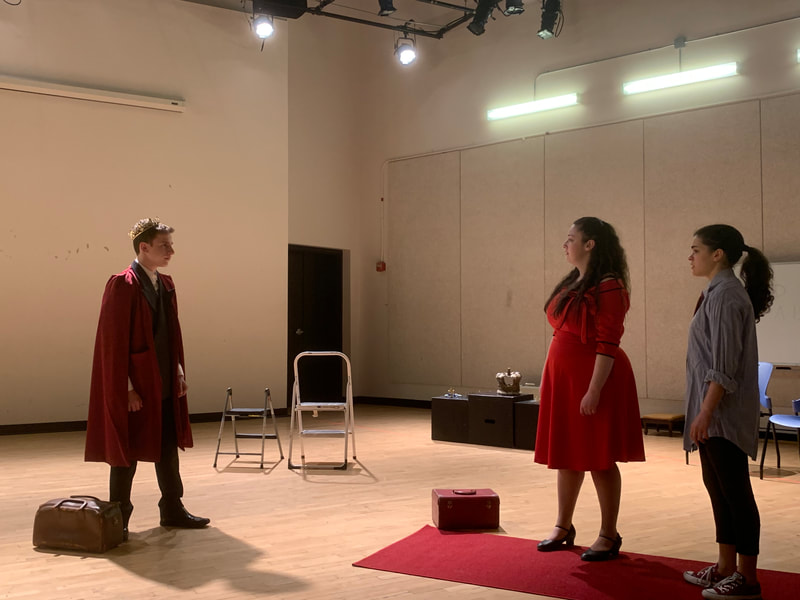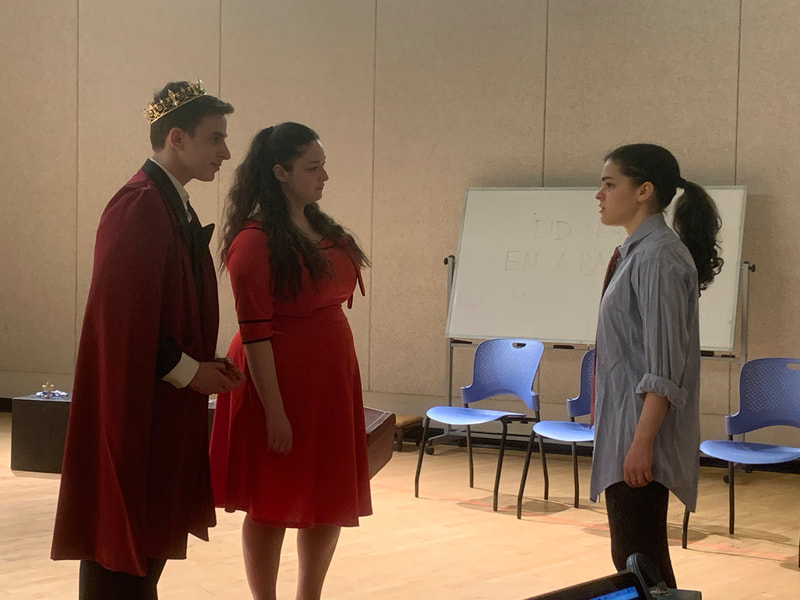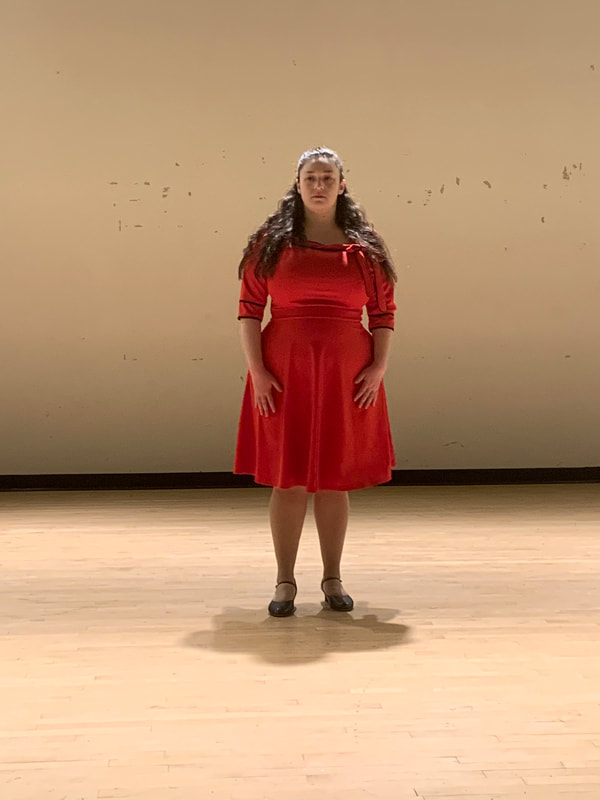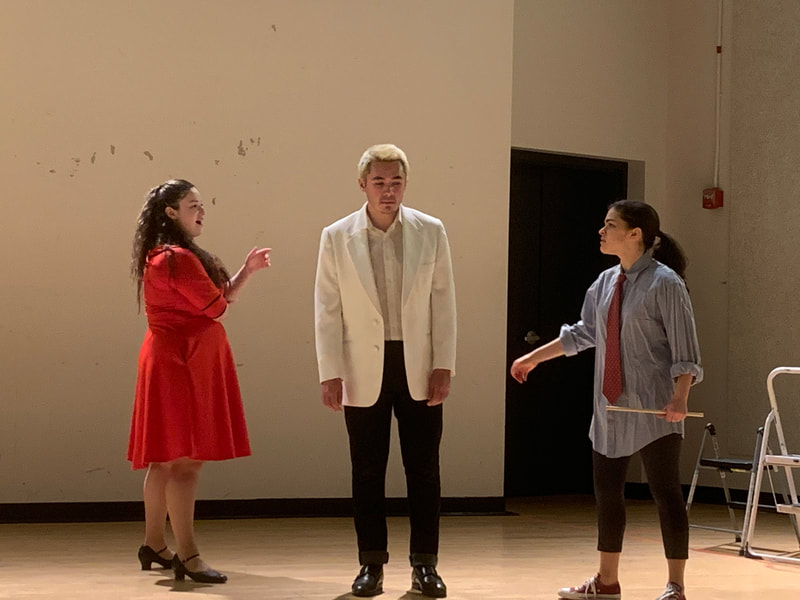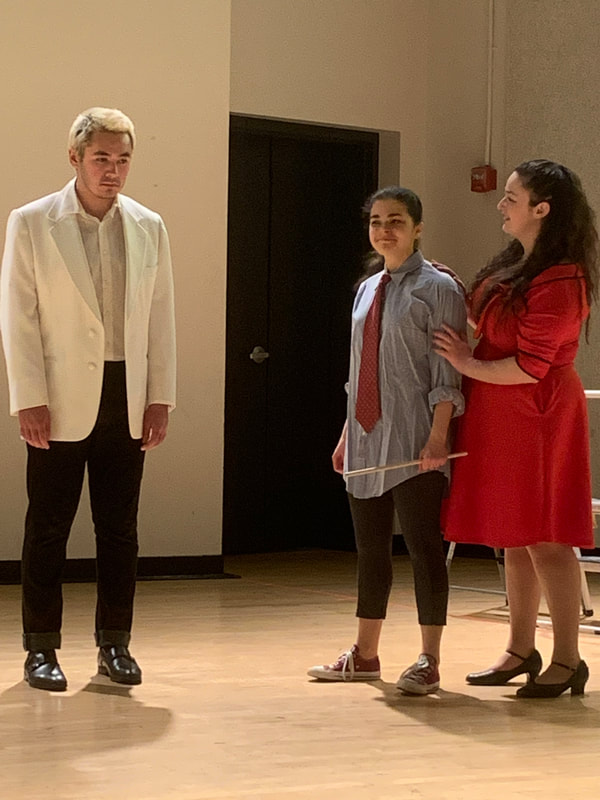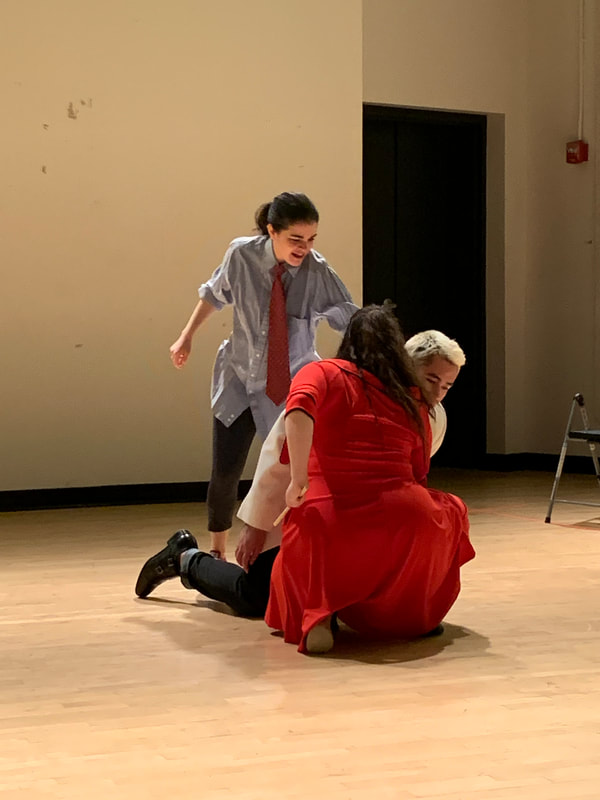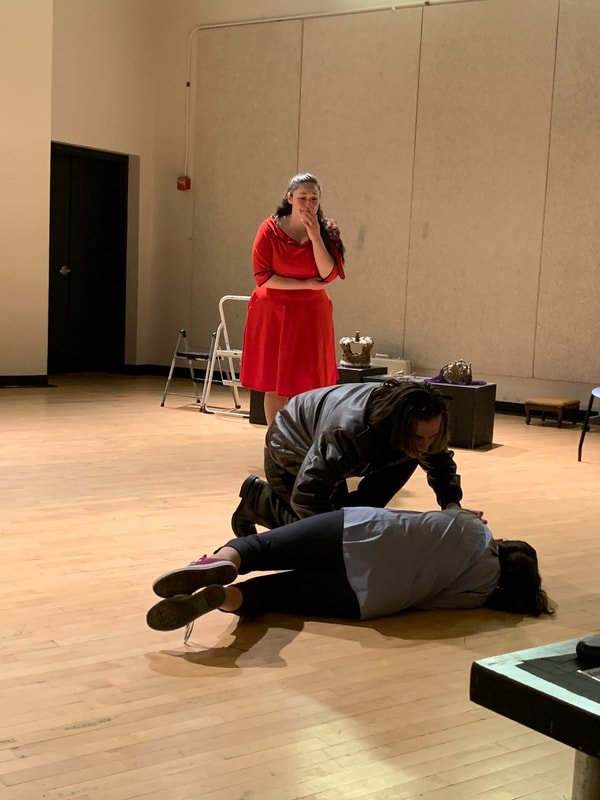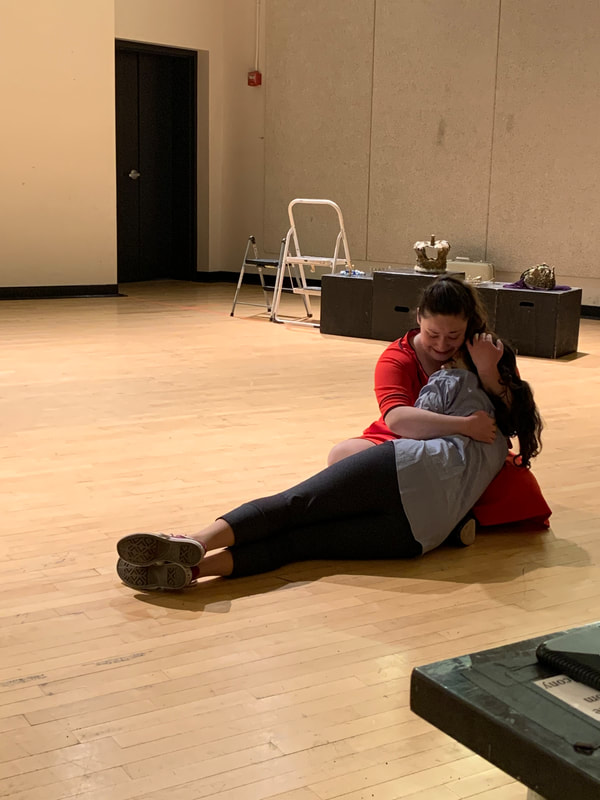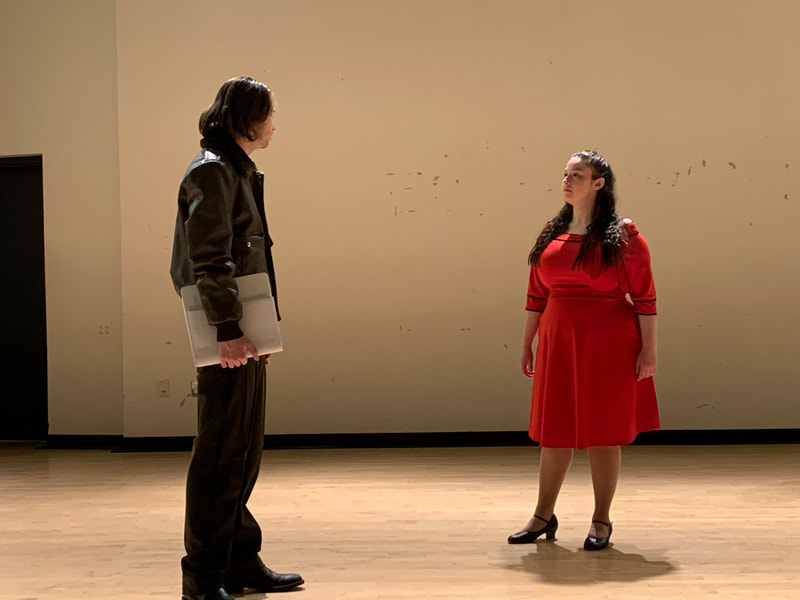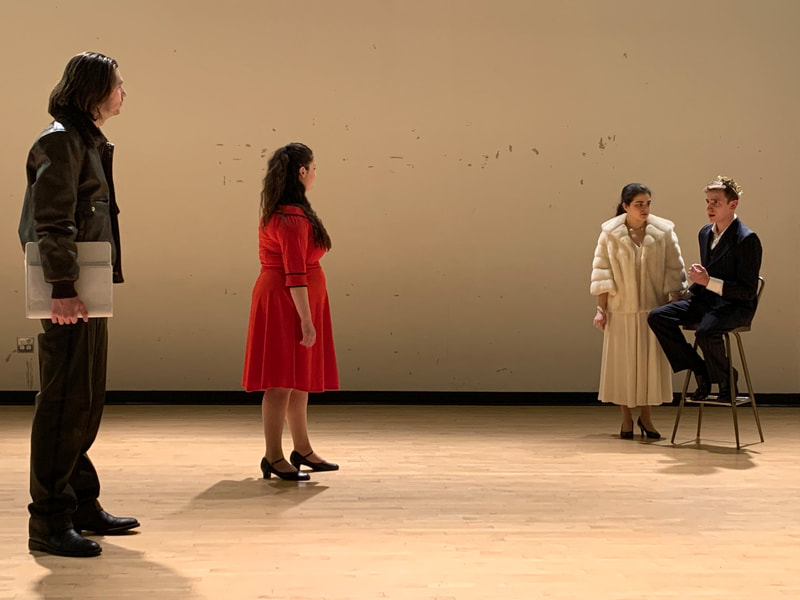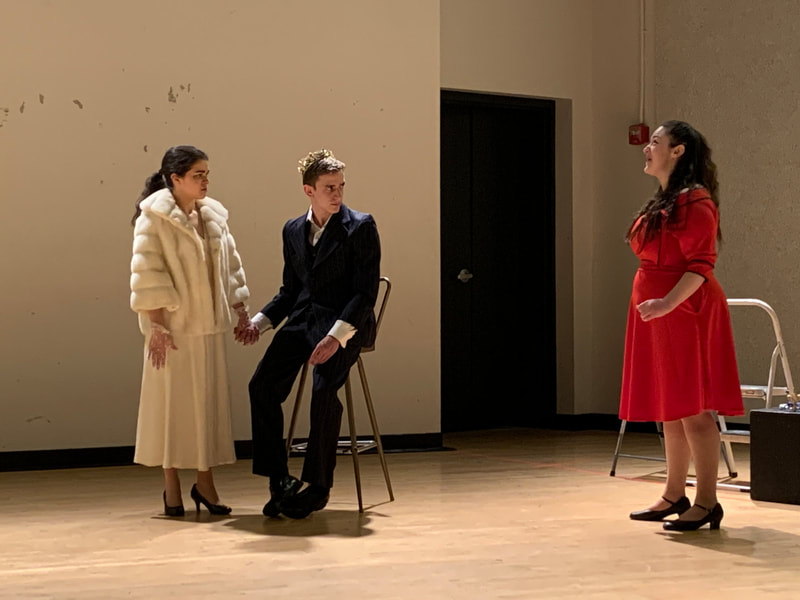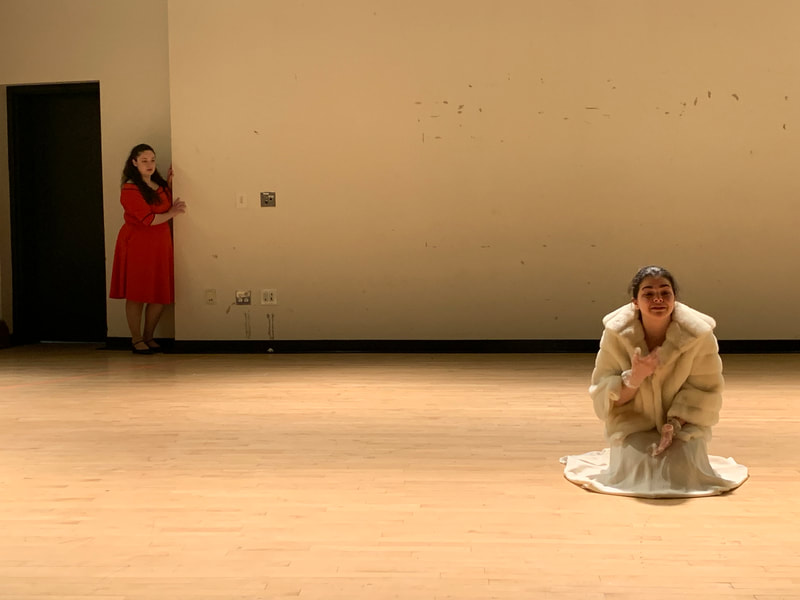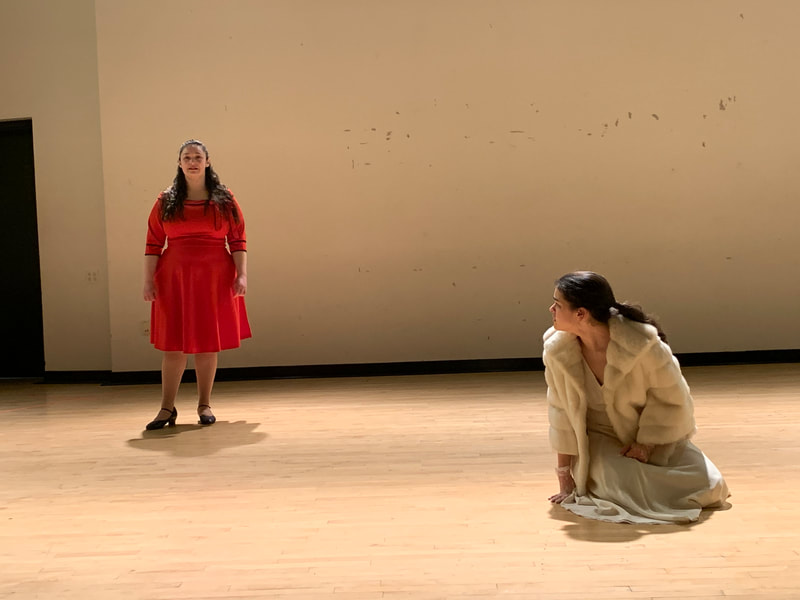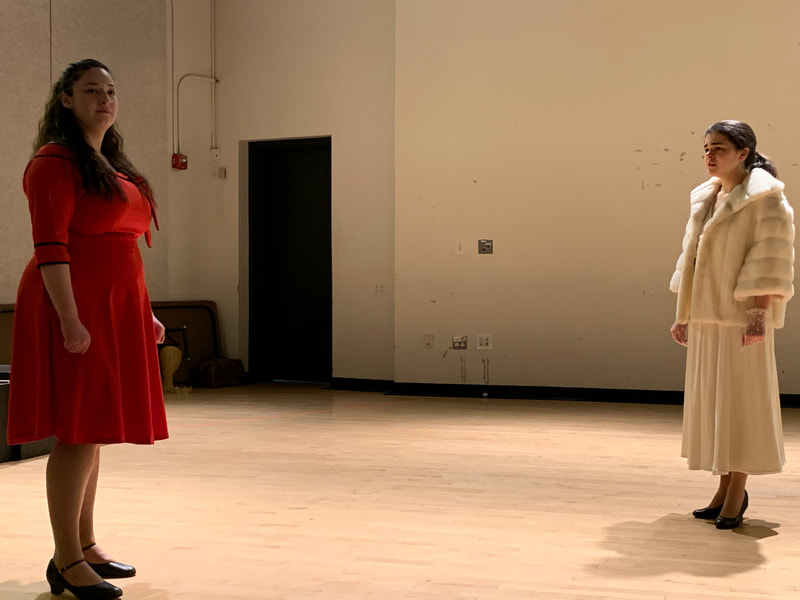I had the joy of spending my final two years at Brandeis University crafting the script and performance of Margaret My Name. This piece is a one-hour cut of Henry VI parts I, II, III, and Richard III which retells the War of the Roses from the perspective of Queen Margaret of Anjou. I embarked on this project to explore the capacity of modern artists to reframe classical narratives to reclaim and highlight the women who drive them forward. The creation of this piece was cut short several weeks before opening as a result of the COVID-19 pandemic, though the months of script crafting and rehearsal collaboration remain. Please check out some samples of the work generated by this project!
UPDATES:
*A virtual reading of Margaret My Name will be hosted by Artists' Theatre of Boston in Summer 2021*
* Margaret My Name was awarded a Harold and Mimi Steinberg Prize for Best Original Play *
* Margaret My Name was awarded Highest Honors by the Brandeis Department of Theater Arts *
UPDATES:
*A virtual reading of Margaret My Name will be hosted by Artists' Theatre of Boston in Summer 2021*
* Margaret My Name was awarded a Harold and Mimi Steinberg Prize for Best Original Play *
* Margaret My Name was awarded Highest Honors by the Brandeis Department of Theater Arts *
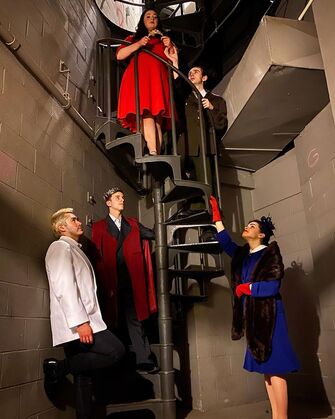
MARGARET MY NAME at Brandeis University: Program Note
Compiled by Rachel Greene
Directed by Zoë Golub-Sass
Stage Managed by Hana Cornwell
Costume Designed by Kat Lawrence
STARRING:
Rachel Greene
Jason Frank
Alan Omori
Eliana Weiss
Seth Wulf
Believe it or not, Shakespeare did not write a one-hour play about the full life of an expectation-defying Frenchwoman-turned-Queen of England. He DID, however, write four plays about power-hungry men destroying one another for control of government; and hidden in the throes of that narrative lies the tale of a woman struggling desperately and valiantly to stay alive, maintain her autonomy, and protect her legacy.
I fell in love with Margaret while working on the plays I now lovingly dub the “Margaret Cycle” (Henry VI parts 1, 2, 3, and Richard III) at Commonwealth Shakespeare Company in 2018. I needed to research Margaret further. I was shocked to discover that most scholarship ignored the queen entirely, or else dismissed her as a villain. Shakespeare scholar Harold Bloom goes as far as to call her “termagant,” “any actress’ nightmare,” and “a ghastly widow, for whom Shakespeare never could compose a decent line.”
I realized I was getting nowhere with scholars who only analyze Margaret for how she functions in the story of the men clashing for the English crown. In that context, she is so easily diminished to a plot device. But what if we were to cut out all the noise of a Shakespearean history play and bring Margaret to the forefront of her own narrative? What if these plays were about a woman and not a piece of bejeweled headwear?
As it turns out, Margaret has proven (in my humble opinion) to be one of Shakespeare’s most dynamic characters. She traverses and transcends all the female literary archetypes and employs endless tactics to protect her agency. She lives a full, complex lifetime in four plays.
At its core, this piece is a celebration. It is a celebration of a woman, simply because she lived, made a mess, and fought ruthlessly, ungently, and savagely for her agency. This piece is a rejection of the simplistic dismissal of Margaret as an “archvillainess,” and with that, the dismissal of so many women today for behaving loudly and unapologetically. Crafting this script and portraying Margaret has taught me a lot about my role as a woman, an actor, and a theater-maker in 2020. I feel that reclaiming the narratives of complex women neglected by time and popular interpretation and telling their stories with truth and love is my responsibility as a contemporary theater artist. Beyond this, Margaret has reminded me how and why women deserve to fight for themselves constantly and without apology.
I need to extend my endless thanks to Marya Lowry, Tom King, Isaiah Wooden, Alicia Hyland, Alex Jacobs, and Sara Kenney, for your support and guidance, both official and unofficial.
I must also share my deepest gratitude towards the team that made this show happen: to my director, Zoë, for your endless patience and passion, and for going above and beyond to help me craft this script and this dream into a play; to my stage manager, Hana, for being a part of this from the very beginning and being a constant source of support; to my costume designer, Kat, for your incredible attention and care in designing this piece; to my phenomenal cast, Alan, Eliana, Jason, and Seth, for building this world with me and for always bringing your hearts, minds, and humor to the work. Thank you all for trusting me, teaching me, and telling this story with me.
Compiled by Rachel Greene
Directed by Zoë Golub-Sass
Stage Managed by Hana Cornwell
Costume Designed by Kat Lawrence
STARRING:
Rachel Greene
Jason Frank
Alan Omori
Eliana Weiss
Seth Wulf
Believe it or not, Shakespeare did not write a one-hour play about the full life of an expectation-defying Frenchwoman-turned-Queen of England. He DID, however, write four plays about power-hungry men destroying one another for control of government; and hidden in the throes of that narrative lies the tale of a woman struggling desperately and valiantly to stay alive, maintain her autonomy, and protect her legacy.
I fell in love with Margaret while working on the plays I now lovingly dub the “Margaret Cycle” (Henry VI parts 1, 2, 3, and Richard III) at Commonwealth Shakespeare Company in 2018. I needed to research Margaret further. I was shocked to discover that most scholarship ignored the queen entirely, or else dismissed her as a villain. Shakespeare scholar Harold Bloom goes as far as to call her “termagant,” “any actress’ nightmare,” and “a ghastly widow, for whom Shakespeare never could compose a decent line.”
I realized I was getting nowhere with scholars who only analyze Margaret for how she functions in the story of the men clashing for the English crown. In that context, she is so easily diminished to a plot device. But what if we were to cut out all the noise of a Shakespearean history play and bring Margaret to the forefront of her own narrative? What if these plays were about a woman and not a piece of bejeweled headwear?
As it turns out, Margaret has proven (in my humble opinion) to be one of Shakespeare’s most dynamic characters. She traverses and transcends all the female literary archetypes and employs endless tactics to protect her agency. She lives a full, complex lifetime in four plays.
At its core, this piece is a celebration. It is a celebration of a woman, simply because she lived, made a mess, and fought ruthlessly, ungently, and savagely for her agency. This piece is a rejection of the simplistic dismissal of Margaret as an “archvillainess,” and with that, the dismissal of so many women today for behaving loudly and unapologetically. Crafting this script and portraying Margaret has taught me a lot about my role as a woman, an actor, and a theater-maker in 2020. I feel that reclaiming the narratives of complex women neglected by time and popular interpretation and telling their stories with truth and love is my responsibility as a contemporary theater artist. Beyond this, Margaret has reminded me how and why women deserve to fight for themselves constantly and without apology.
I need to extend my endless thanks to Marya Lowry, Tom King, Isaiah Wooden, Alicia Hyland, Alex Jacobs, and Sara Kenney, for your support and guidance, both official and unofficial.
I must also share my deepest gratitude towards the team that made this show happen: to my director, Zoë, for your endless patience and passion, and for going above and beyond to help me craft this script and this dream into a play; to my stage manager, Hana, for being a part of this from the very beginning and being a constant source of support; to my costume designer, Kat, for your incredible attention and care in designing this piece; to my phenomenal cast, Alan, Eliana, Jason, and Seth, for building this world with me and for always bringing your hearts, minds, and humor to the work. Thank you all for trusting me, teaching me, and telling this story with me.
Feel free to reach out with any questions or inquiries about this project! I am happy to share the entire video of our final rehearsal run, share the script, or discuss any element of the work further. Here are a few more resources from my work and research, including an academic paper chronicling my dramaturgical research on Margaret, my program note, a timeline of Margaret's involvement in these plays, a dramaturgy packet for actors working on these texts, and a link to a Spotify playlist filled with high energy, feminist jams that have fed my crafting of this piece:
| Margaret My Name Thesis Essay | |
| File Size: | 416 kb |
| File Type: | |
| Margaret My Name Program Note | |
| File Size: | 67 kb |
| File Type: | |
| Margaret My Name Timeline | |
| File Size: | 104 kb |
| File Type: | |
| Margaret My Name Actor Dramaturgy Packet | |
| File Size: | 967 kb |
| File Type: | |
